I ran Four Popular Google Searches on ChatGPT, and the Results Will Surprise You.
Let's do some simple user tasks and compare the results in ChatGPT and Google. I did this work and want to share the results with you as they illustrate the future of AI and chatbots.

Code Red at Google is what the news is screaming about ChatGPT. The father and creator of Gmail, Paul Buchheit, thinks ChatGPT could destroy the Google business in a few years. Okay, everybody! Let's calm down and see the difference between Google and ChatGPT from a user experience perspective.
Let's do some simple user tasks and compare the results in ChatGPT and Google. I did this work and want to share the results with you as they illustrate the future of AI and chatbots.
First, let's all get on the same page with some definitions of these two products. Google Search and OpenAI's ChatGPT are AI-powered tools for answering questions, but they fundamentally differ in their approach and functionality.
Google Search is a web-based search engine that uses algorithms to index and searches the web for information. When a user types a query into the search bar, Google's algorithms search its index and present relevant web pages as results. Google Search relies on the structure and content of the web pages to provide appropriate answers, making it an effective tool for finding information that has already been published.
On the other hand, ChatGPT is a conversational language model that generates text based on an input prompt. Unlike Google Search, ChatGPT doesn't rely on existing information on the web. Instead, it uses deep learning algorithms to generate text from scratch based on patterns it has learned from a massive corpus of text data.
The most significant difference between these two tools is the nature of the information they provide. Google Search includes information published on the web, while ChatGPT generates new information based on patterns it has learned from existing text data. This learning means that ChatGPT can provide answers to questions that don't have a direct answer on the web and can even generate creative content.
Regarding similarities, both AI-powered tools use algorithms to process and generate information. Additionally, both devices can provide answers to questions, making them practical tools for information retrieval.
Testing ChatGPT and Google Search
I have taken the most popular Google search terms from 2022 and picked four search terms with task inference, such as information retrieval and language translation. So let's look at the results and wait for how crazy things get at the end.
Test 1: "What is the weather in Sydney today?"
Slam dunk to Google on this test, as ChatGPT only has data up to 2021.
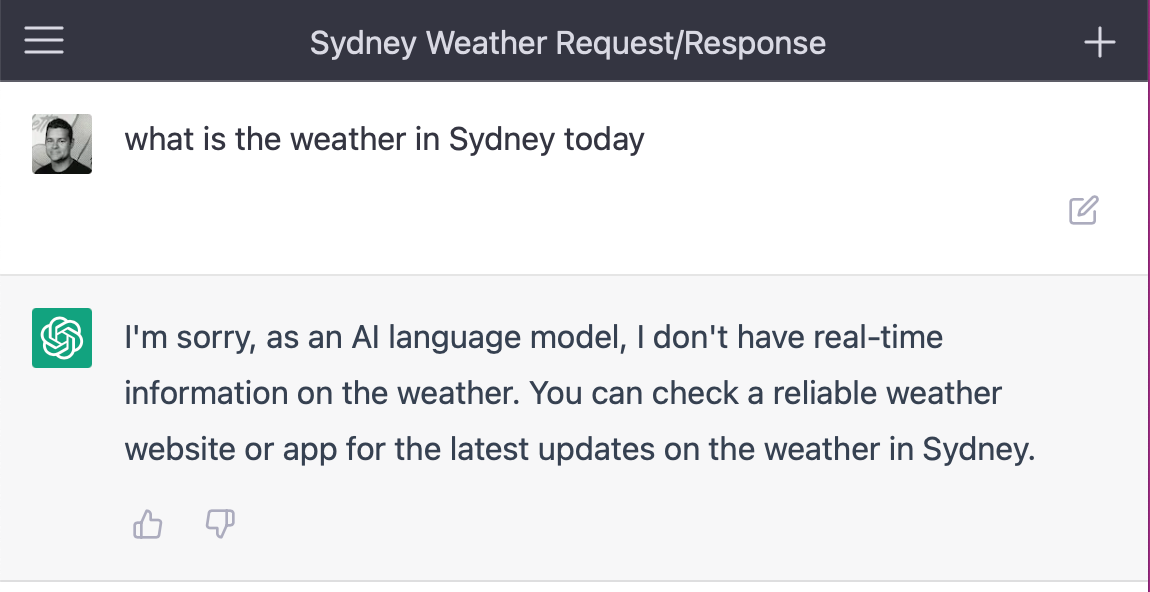
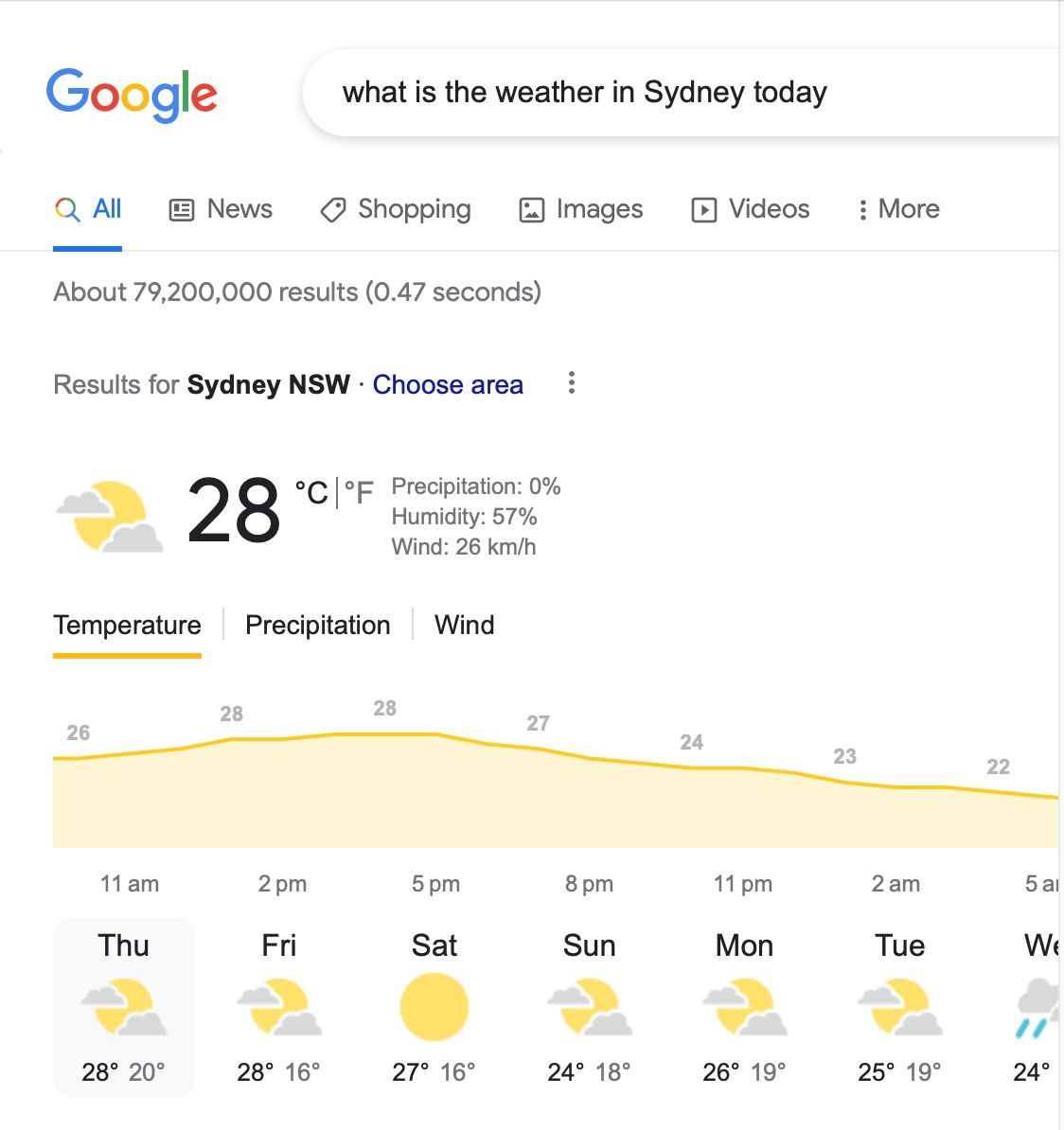
Test 2: "translate yummy into dutch"
Pretty even on this test. As you can see, there is a little functionality from Google hear.
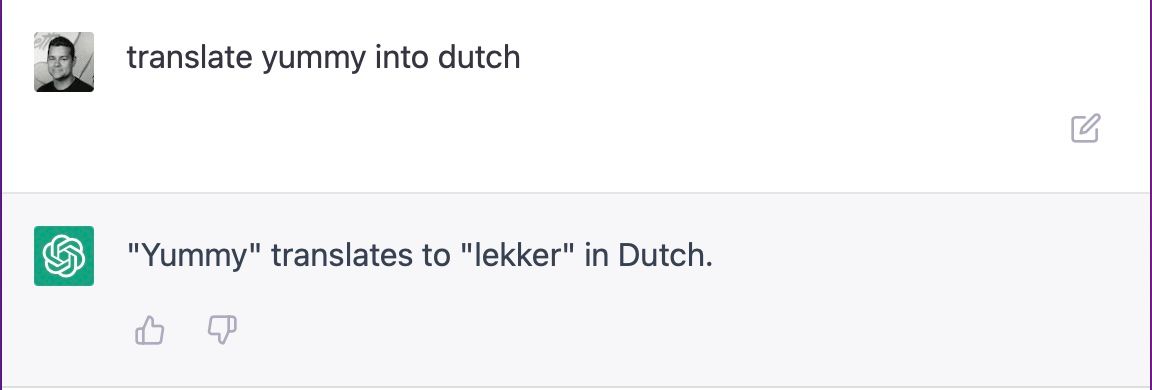
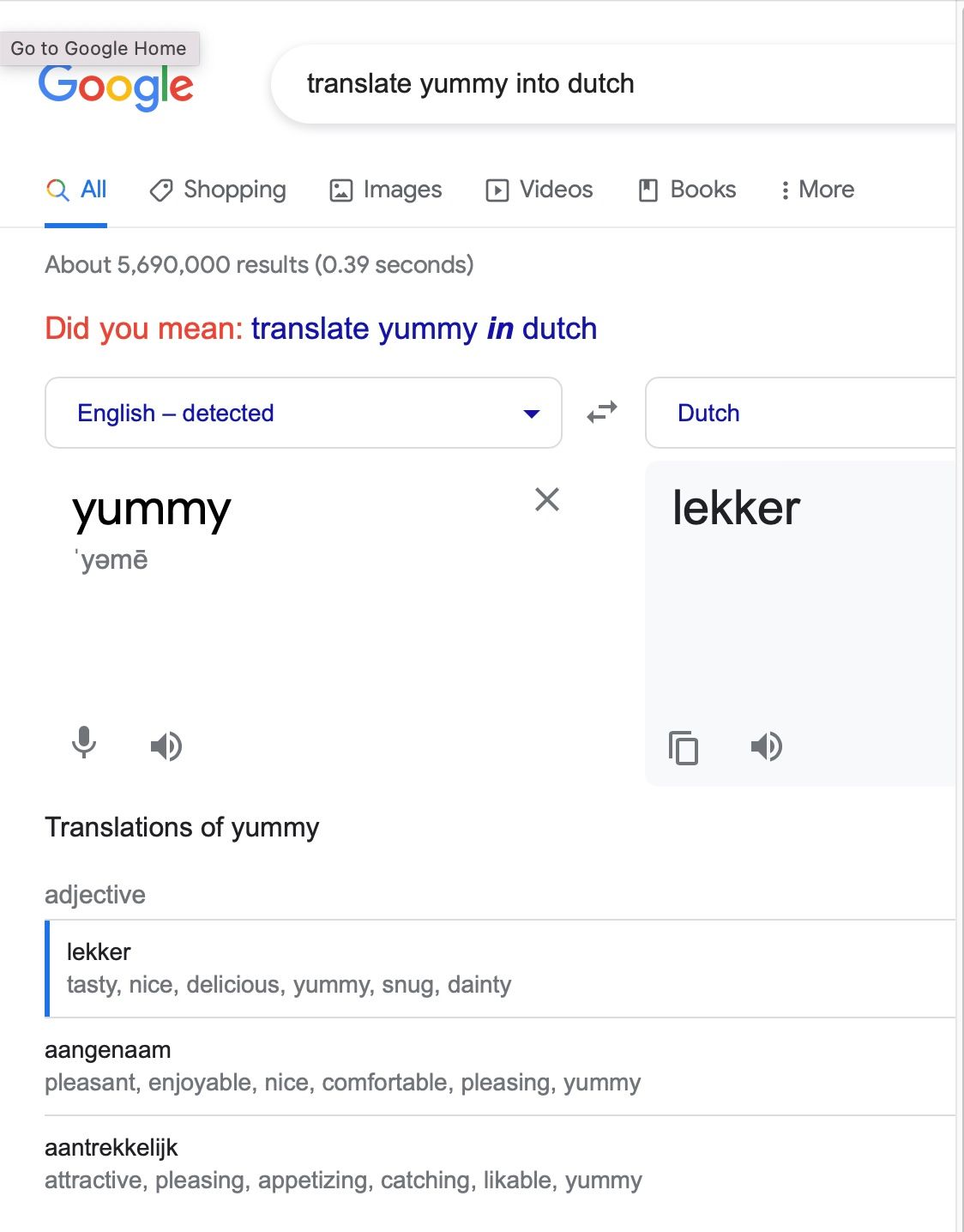
Test 3: "how do i improve my internet speed?"
For the first time, ChatGPT surpasses Google Search with a more complete and detailed answer.
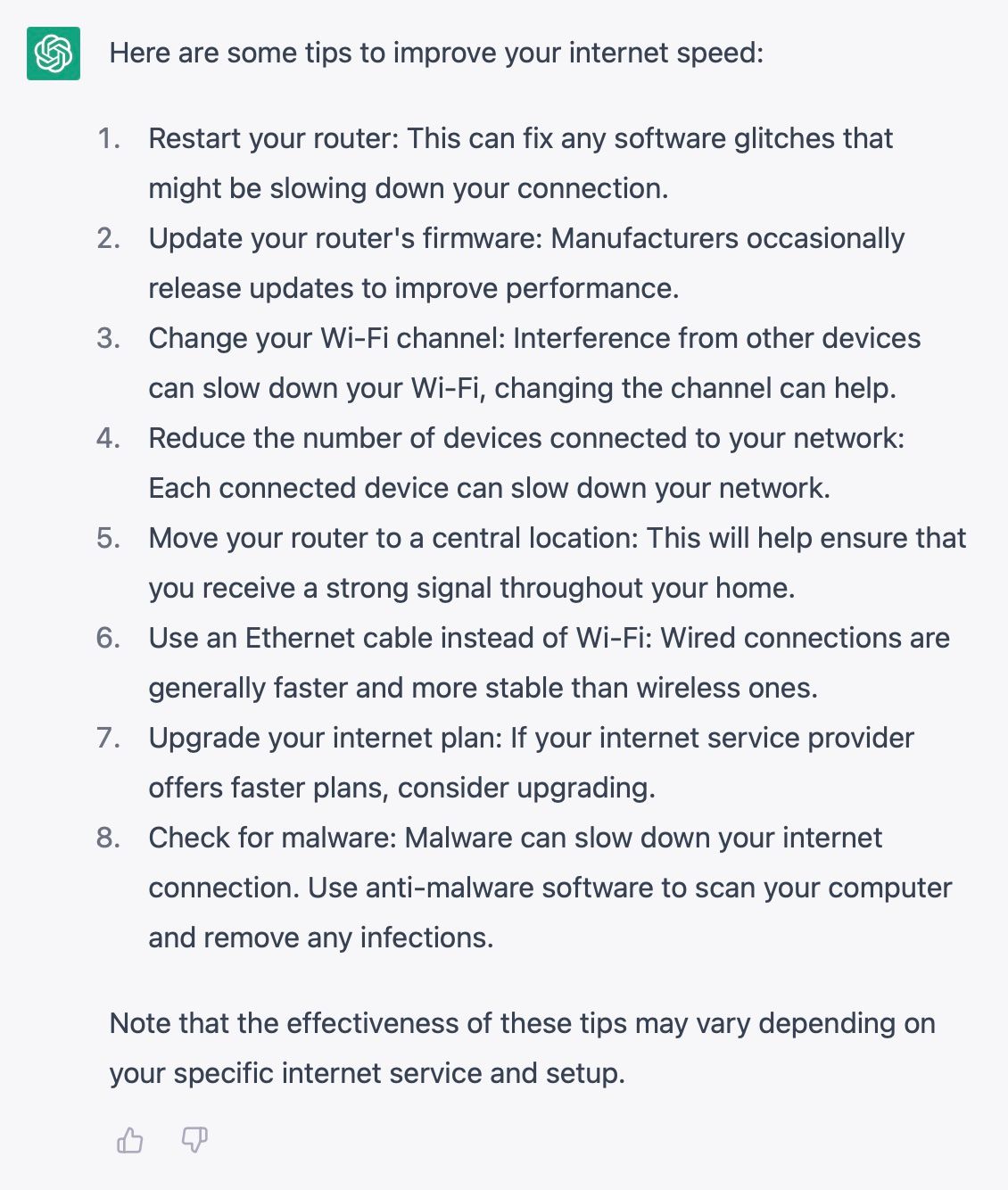
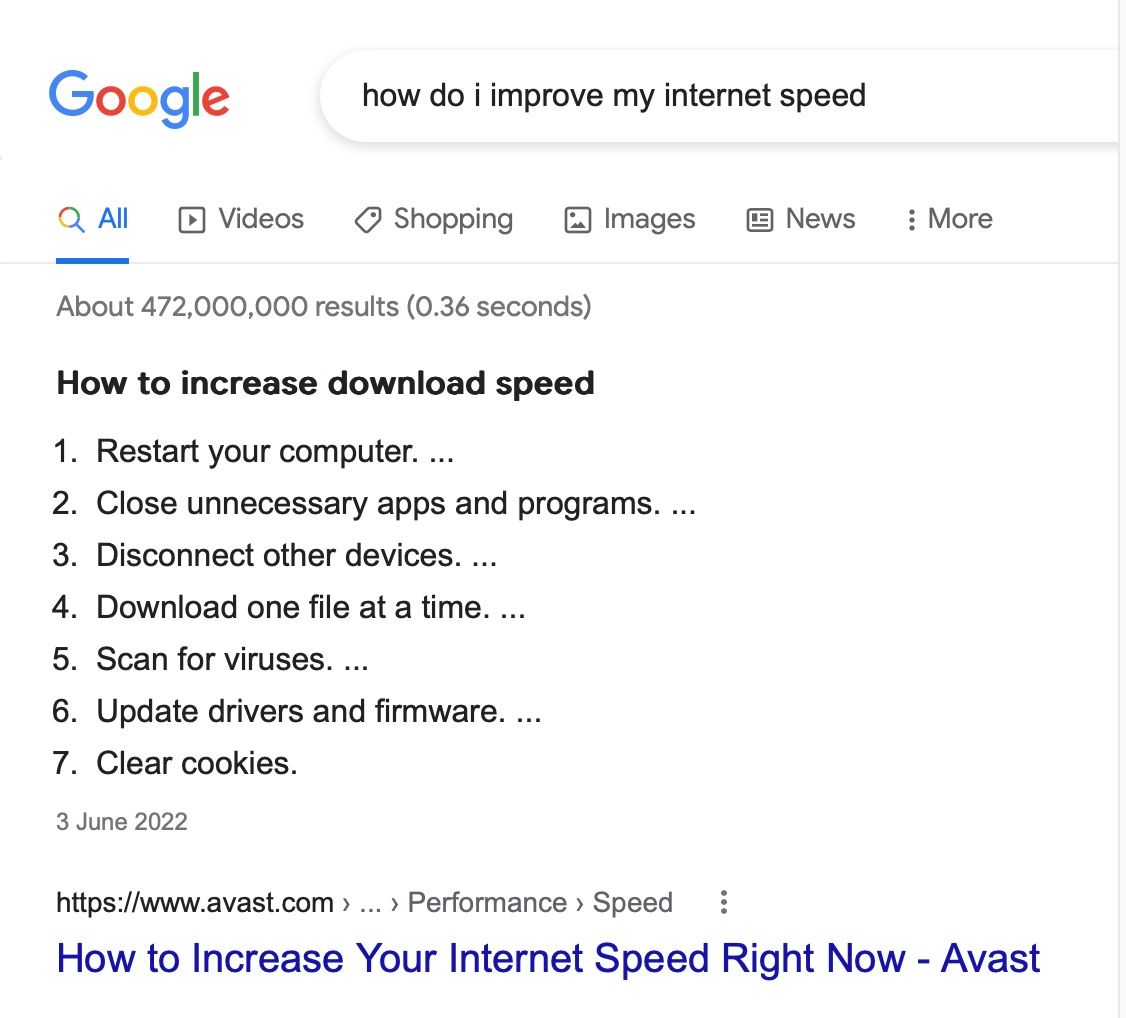
Test 4: write a blog post
As you can see with this request, Google is unable to help. ChatGPT is its element: a mixture of language, insight and generation of new content.
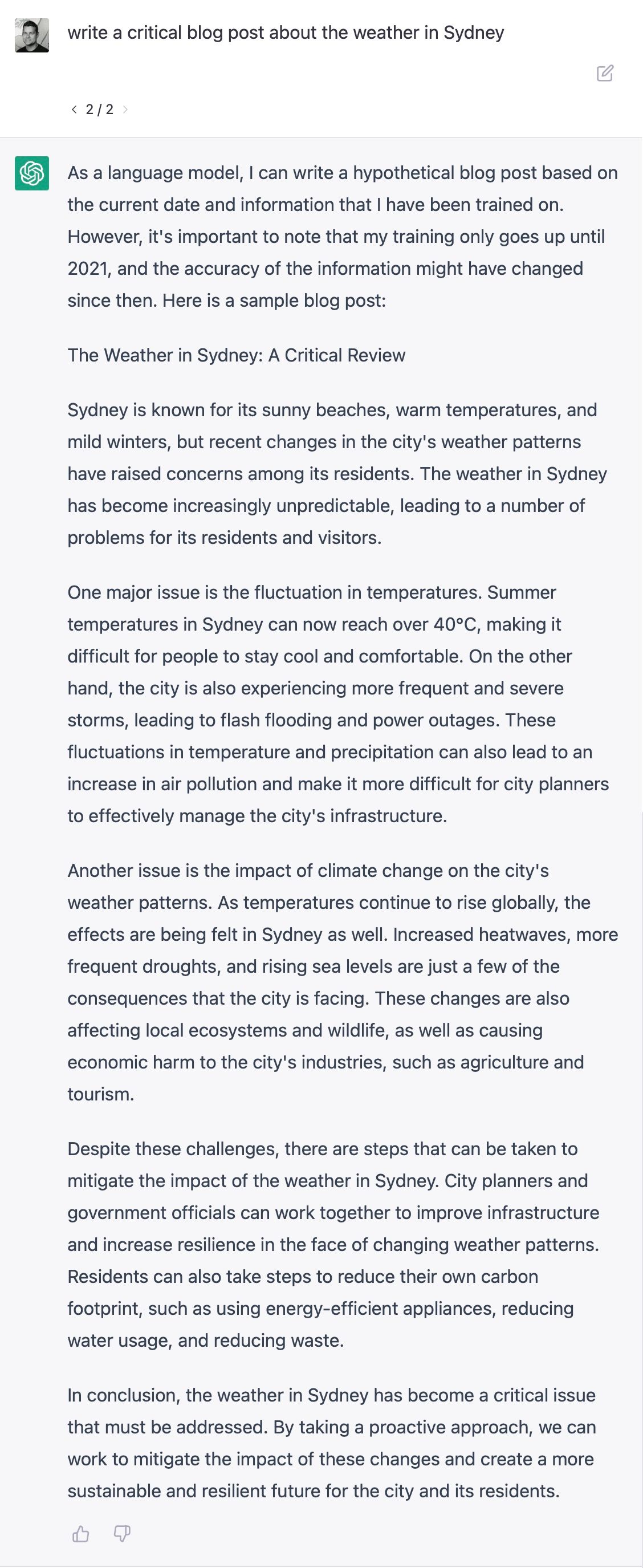
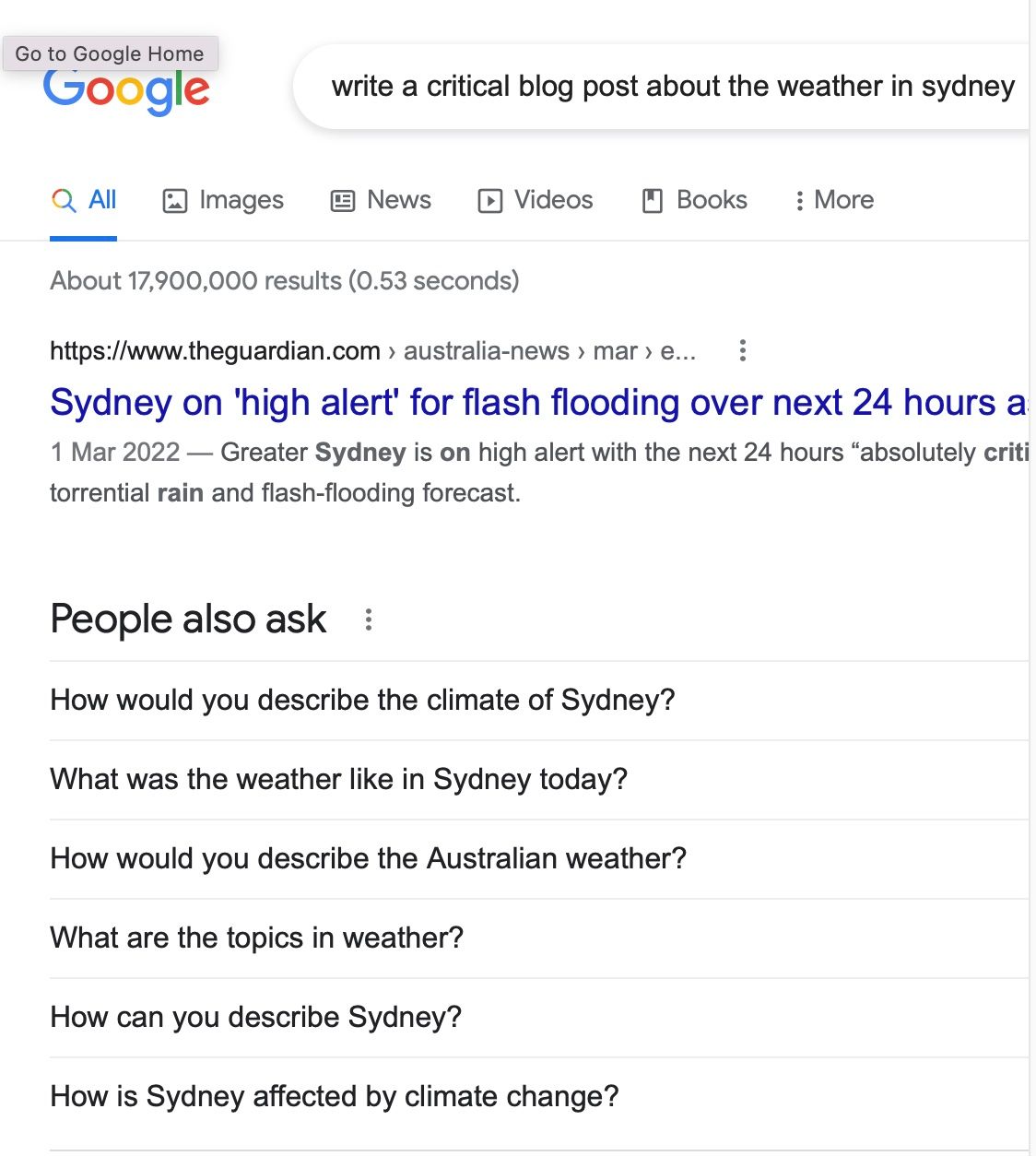
The Power of Prompts
To start this discussion with ChatGPT, I used this prompt:
"You are a weather and environmental expert.
Write an outline for a blog post titled "5 Reasons why Sydney weather is not as good as may think" the outline should include an introduction, five main points, and a conclusion."
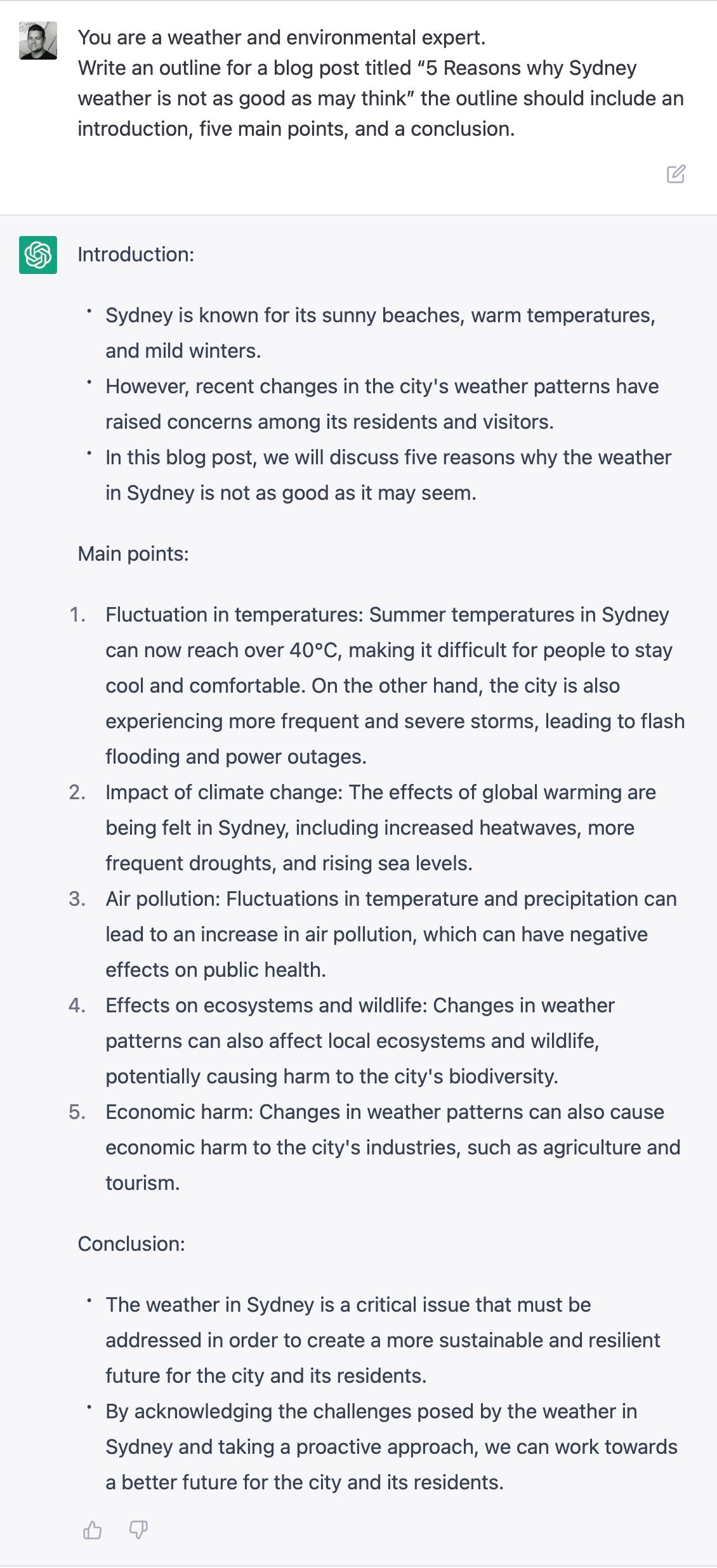
The robust nature of ChatGPT and the way it uses prompts are based on history concatenation. ChatGPT is an extensive language model trained by OpenAI that uses multiple prompts to generate a more comprehensive answer. This improvement works through a technique called "history concatenation."
The model concatenates multiple inputs and generates a response based on the entire input history. This history allows ChatGPT to develop a more informed answer by considering the context of the whole conversation instead of generating a response based solely on the most recent prompt.
So let's go back to our original prompt and look at how additional prompts improve the answers. And when I say improve, I am talking about drastic improvement.
Next Promt...
"Okay, now write 200 words for the introduction, five main points, and conclusion. For each of the main points you should take a point of view, then cite a statistic to back up your point of view, and an example to illustrate."
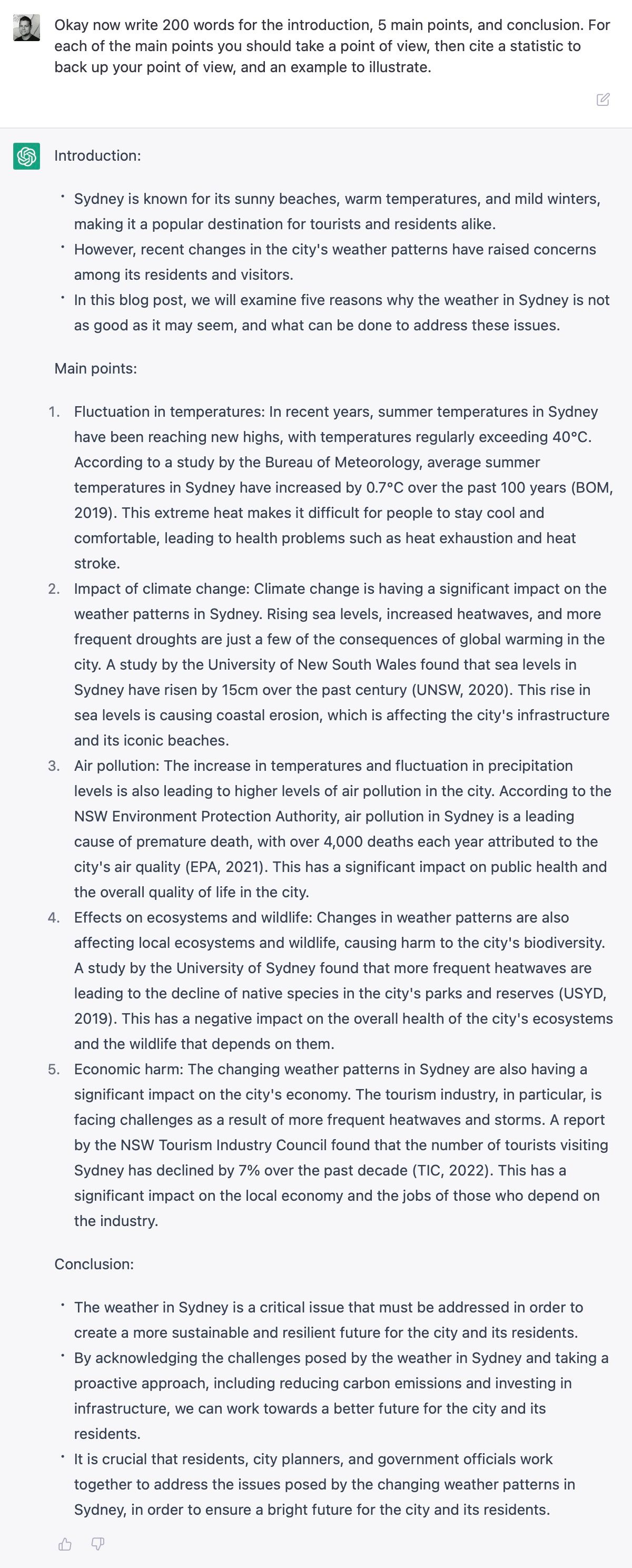
Next Promt...
"Now replace the text that annotates the beginning of each section with a compelling headline."
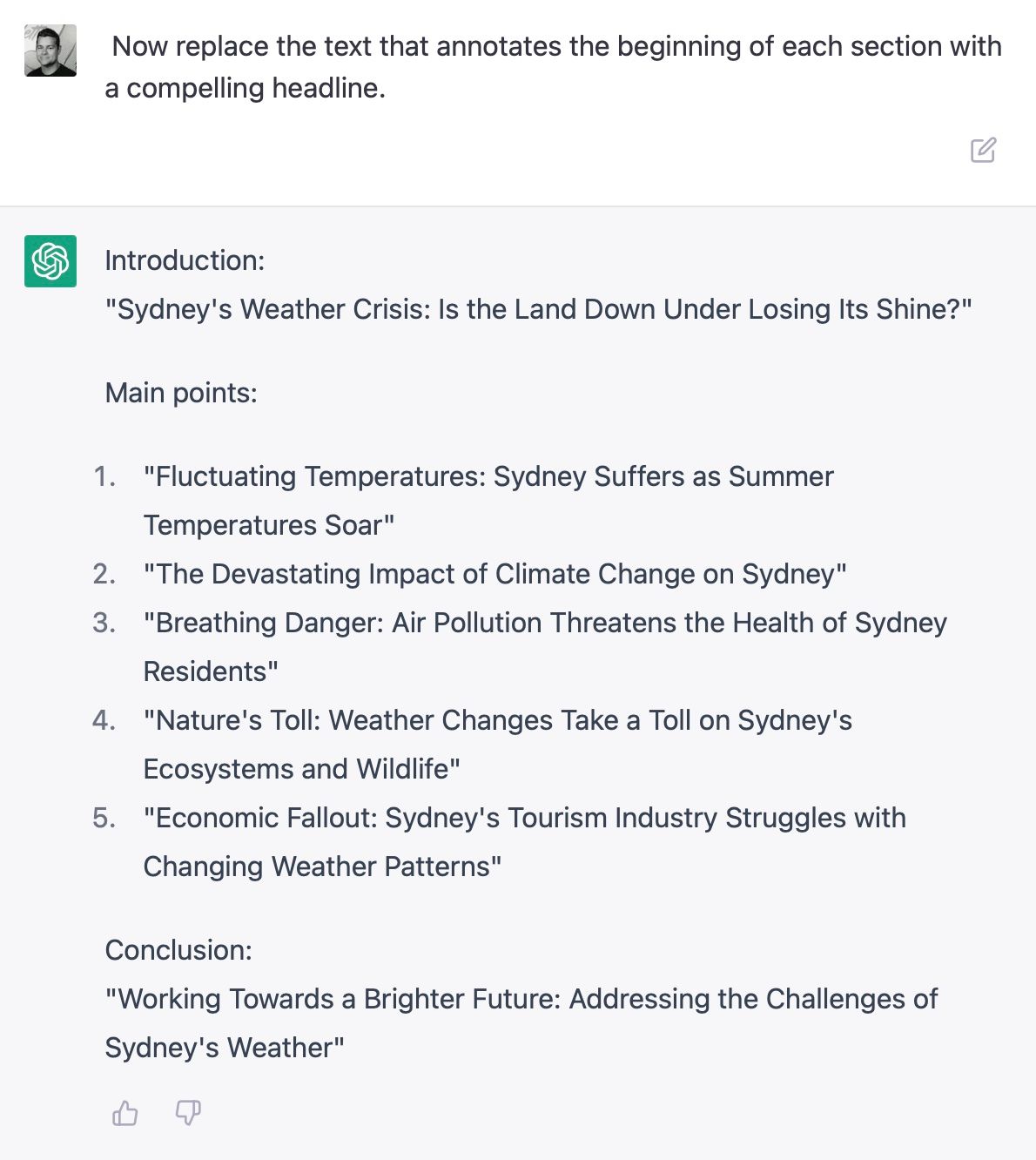
Next Promt...
"Now recommend an image that illustrates the overall blog post and one for each of the four main sections."
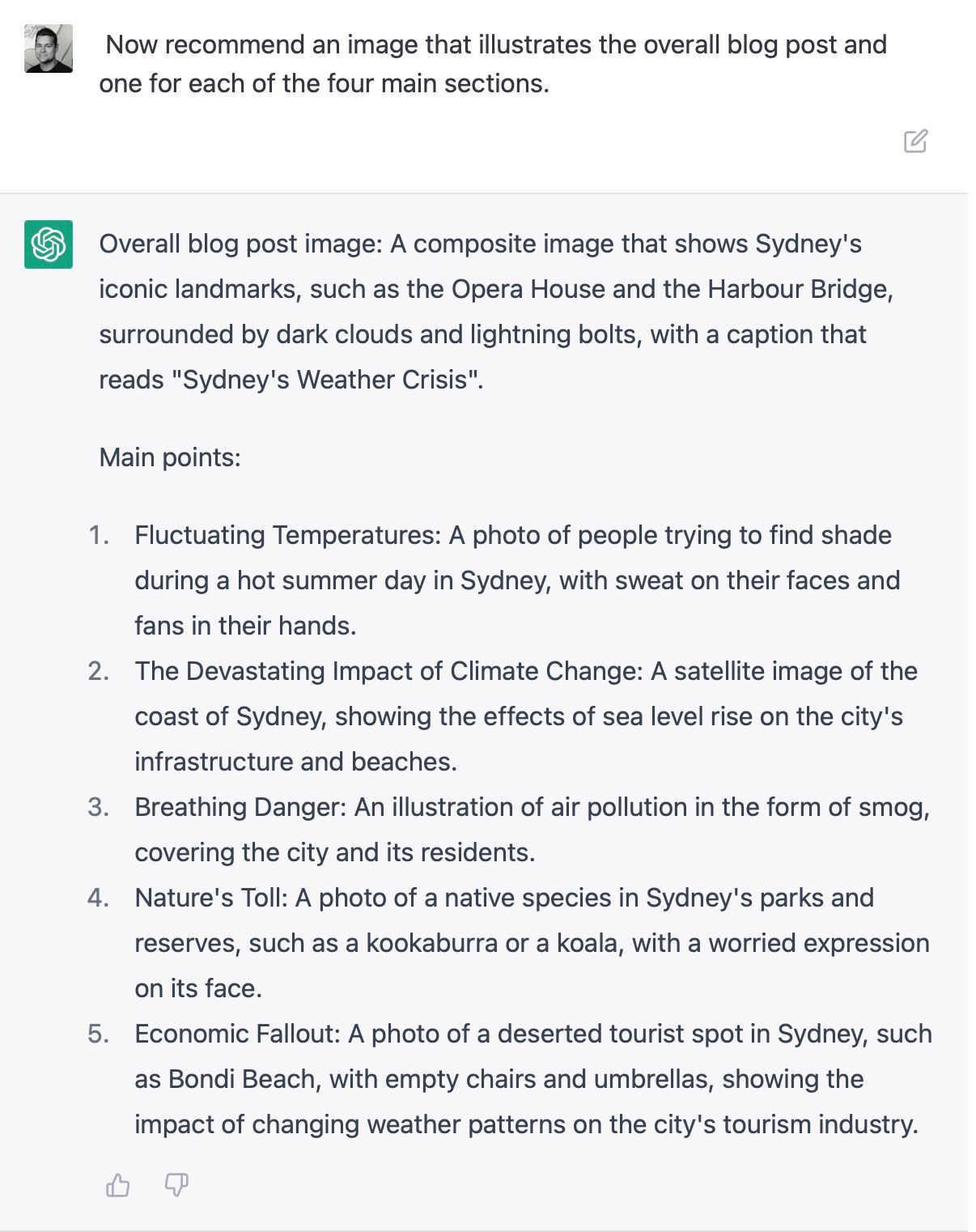
Next Promt...
"Now provide a list of five citations for the statistics mentioned in the blog post."
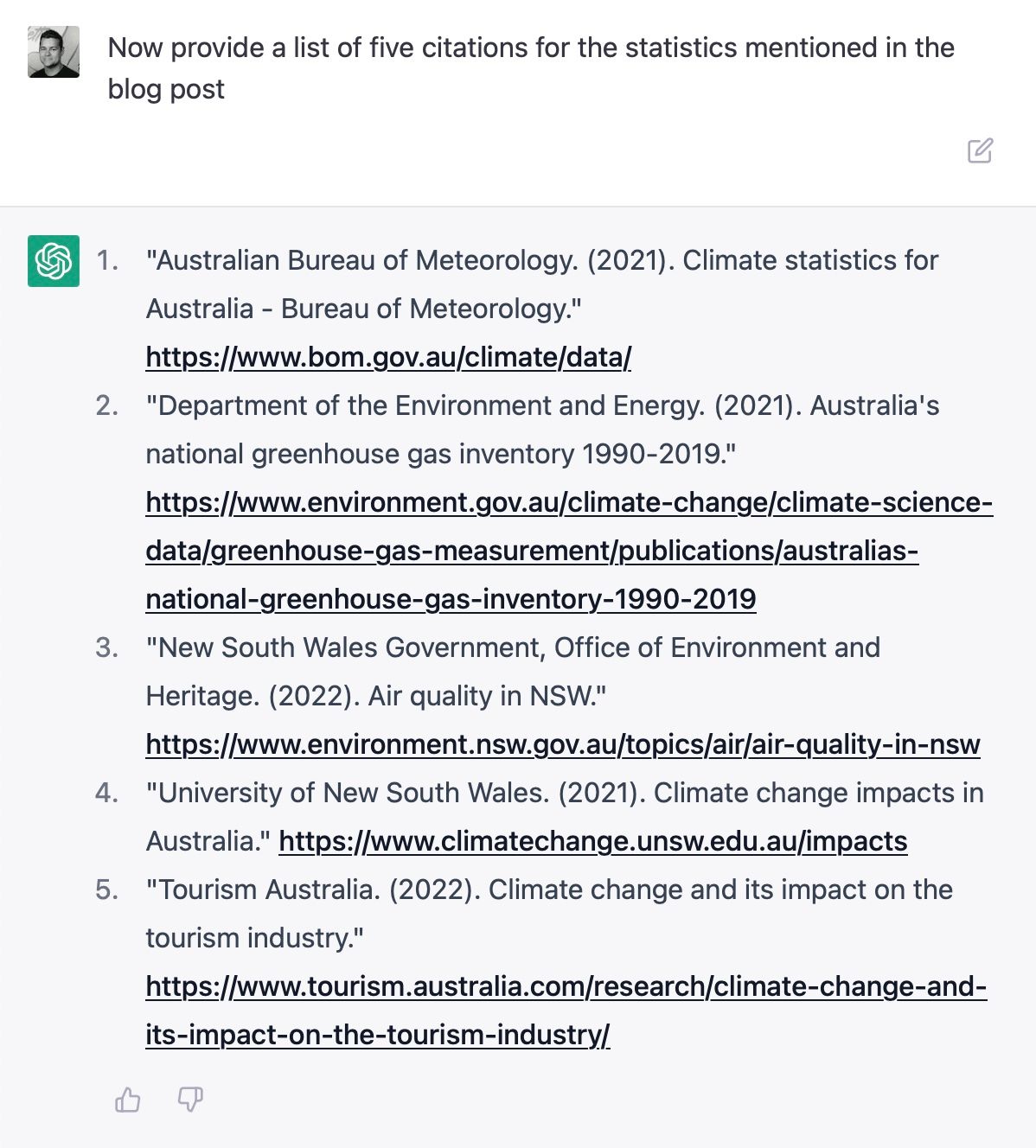
Testing ChatGPT and Google Summary
Prompts and history concatenation are just the starts of the worries for Google. The blog post i just created is a good quality and far beyond anything Google search can do. But as you can see from this test, it would be easy for ChatGPT to support basic real-time data requests. Would it be as easy for Google to match ChatGPT on content creation and generative content? Only time will tell.

